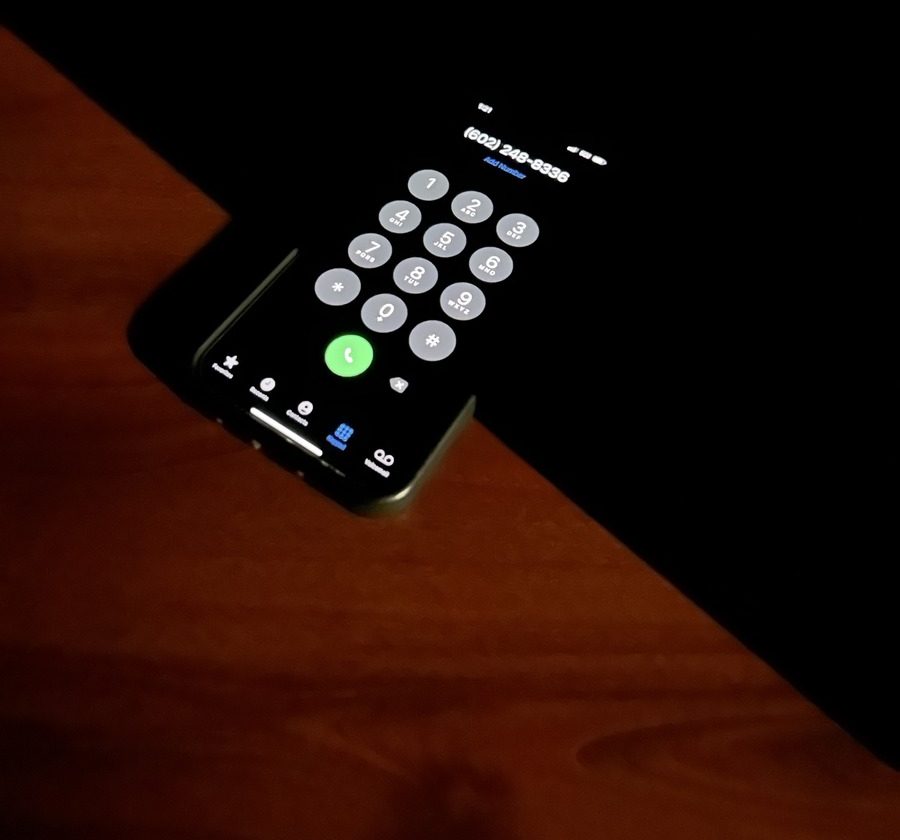According to Vicki Harrison, program director at the Stanford Center for Youth Mental Health and Well-Being, “It hasn’t always been normalized to talk about mental health and how to address feeling sad or worried about things. It’s not something that all of us have been taught to really understand and how to cope with. A lot of young people aren’t comfortable seeking professional services.” The Stanford Center is the Department of Psychiatry and Behavioral Health and Wellbeing at Stanford University that aims to improve the health of individuals and communities by innovating and researching ways to lessen suffering caused by mental illness.
Logan Duncan ’26 advocates for mental health by pursuing a job as a counselor through Teen Lifeline. Duncan began training in April and is in phase one of the life skills development program. Peer counselor trainees must complete three phases and 72 hours of training before operating the crisis hotline.
Duncan explains how she found an interest in this volunteer work, saying, “I got involved when my college counselor and I were looking through extracurriculars and the Teen Lifeline was highly recommended to develop communication skills and personal growth.” Teen Lifeline is an intervention center that receives calls and texts from teens in crisis and aims to prevent suicide by offering support and a listening ear to struggling teens.
In phase one, according to Teen Lifeline, the volunteers learn important communication and problem-solving skills as well as decision-making and listening skills. This phase takes two days and staff and counselors work with the teens in groups to practice these skills.
In phase two, volunteers practice the skills in phase one and gain an understanding of procedures that take place in the hotline. Peer counselors will act out roles and help the volunteer to experience what a call may sound like. This phase lasts six weeks and volunteers will train once a week for six hours in the evening.
In phase three, the final phase, volunteers will learn about prominent problems teens face and will be equipped with information that will best help those experiencing crises. This will take place over two days and is seven hours each day.
Having completed the training process, Duncan explains that she will work in shifts of approximately five to six hours in the afternoon on days she is available. There, she will answer texts and calls from the crisis hotline.
Duncan gives a general description of a call, saying, “The types of calls vary because unfortunately, there are so many different stressors related to teens. You have to explore the problem and allow the caller to find what she wants to see happen in the future and how she can accomplish that.”
The benefits of volunteering for the teen hotline expand into the Xavier community, and Duncan is learning to be a better listener and be more perceptive to things her friends and classmates say. “The whole point of teen lifeline and being on the phone with someone you can’t see is that you really have to listen to him so you can explore it deeper,” Duncan said.
Teen lifeline does outreach events at other schools, some of which put the teen lifeline number on the back of a student ID card as a part of the “School ID Initiative.” According to Teen Lifeline, this serves as a physical reminder to students that there is a resource available to them if they are struggling.
Audrey Frevola ‘25, started her own mental health organization last year, “Teens for Mental Health,” or “T4MH,” in order to provide resources for adolescents who may not have access to mental health resources. Frevola created her organization from scratch.
“There is a lack of mental health resources, especially here at Xavier, and people don’t tend to verbalize it.”
Within her organization and its 36 members, Frevola welcomed guest speakers, Jill Peterson and Mary Frances from Girls Mentorship, a program dedicated to empowering teenage girls on social, emotional and academic competencies.
“Creating the T4MH organization really shows me people want to be involved in something they care about, mental health. I found there were so many people who were enthusiastic to participate and that if you ask people, they want to help out,” Frevola said.
She invited the speakers to the first “T4MH” event last spring. Girls from Xavier came and supported the organization by creating a craft. Each took a butterfly-shaped paper and wrote inspirational messages on it. At the end of the hour-and-a-half event, each girl took home a note with a physical reminder of her individual importance and uniqueness.
“You never know when someone is struggling. There’s a lot of people around who you don’t know are struggling and it’s reinforcing there are so many people who do struggle with it and you just don’t realize.”



